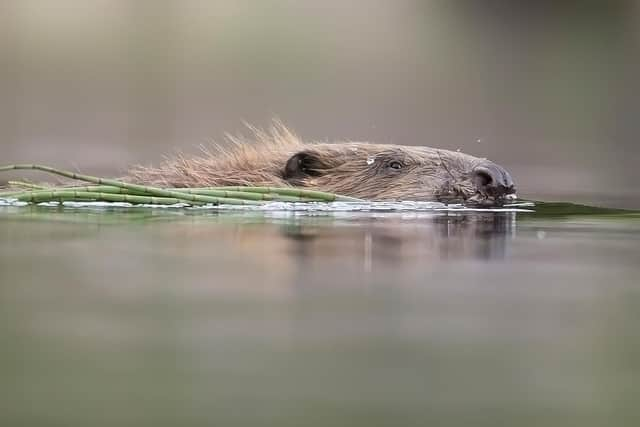Beavers to be relocated across Scotland to help species spread and avoid culls
The announcement comes just days after a group of prominent environmentalists, commentators and academics sent an open letter to ministers, calling for measures to allow beavers to be translocated to all areas of Scotland with suitable habitat for the protected species.
The Scottish Greens have welcomed the new move, which comes as part of a commitment made in their government cooperation agreement with the SNP.
Advertisement
Hide AdAdvertisement
Hide AdThey say it means beavers can be moved within Scotland rather than killed.
Beavers, which were native to Scotland before being hunted to extinction, are often described as ecosystem engineers, creating wetlands that benefit other wildlife, soak up carbon dioxide, purify water and reduce flooding.
However, the species can also cause damage to agricultural land and trees, causing conflict with farmers and landowners.
Today there are two main populations in Scotland - in Knapdale Forest, Argyll, where they were originally released as part of an official reintroduction trial; and around Loch Tay and the Forth, thought to have sprung from animals that were illegally freed or escaped from captivity.


Estimates suggest there are around 954 beavers spread across 254 territories, mainly in the Forth and Tay areas.
The species was granted protected status in Scotland in 2019, with the view that colonies should be allowed to spread naturally.
But since then government agency NatureScot has allowed more than 200 of the animals to be killed under license.
This has caused outrage among conservationists, who believe troublesome beavers should be trapped and transported to suitable sites where they will not negatively impact surrounding communities.
Advertisement
Hide AdAdvertisement
Hide AdGreen MSP and biodiversity minister Lorna Slater said: “Restoring this lost species is important in its own right, but beavers will also contribute to restoring Scotland’s natural environment.”
She said the Scottish Government recognised that beavers can also produce negative impacts but felt confident expansion of territories could be “proactively” assisted.
She added: “We will continue to provide support and advice to land managers to mitigate any negative impacts, and the additional option of trapping and translocation will further enhance this package of support.”
Conservationists have described the government’s change of plan as a “rewilding win for Scotland’s wildlife, climate and farmers”.
Steve Micklewright, chief executive of rewilding charity Trees for Life, said: “After almost half a millennium, the country is set to welcome beavers back properly at last.
“Allowing these habitat-creating, biodiversity-boosting, flood-preventing animals to be relocated across Scotland – to where they are needed and wanted, away from prime agricultural land, and in a way that works for farmers – offers hope for tackling the nature and climate emergencies.”
Scottish Wildlife Trust director of conservation Sarah Robinson said: “Beavers have a vital role to play in tackling the growing crisis facing nature.
“Achieving a thriving national population of beavers which is spread throughout Scotland’s lochs and rivers will unlock a huge range of benefits, including boosting biodiversity and creating new opportunities for wildlife tourism.”
A message from the Editor:
Thank you for reading this article. We’re more reliant on your support than ever as the shift in consumer habits brought about by coronavirus impacts our advertisers.
If you haven’t already, please consider supporting our trusted, fact-checked journalism by taking out a digital subscription.
Comments
Want to join the conversation? Please or to comment on this article.
